This article was co-authored by Klare Heston, LCSW. Klare Heston is a Licensed Independent Clinical Social Worker based in Cleveland, Ohio. With experience in academic counseling and clinical supervision, Klare received her Master of Social Work from the Virginia Commonwealth University in 1983. She also holds a 2-Year Post-Graduate Certificate from the Gestalt Institute of Cleveland, as well as certification in Family Therapy, Supervision, Mediation, and Trauma Recovery and Treatment (EMDR).
There are 13 references cited in this article, which can be found at the bottom of the page.
This article has been viewed 132,689 times.
It’s perfectly normal for teens to test the limits—they’re trying to figure out exactly where they fit in the world. Still, you don’t want a troubled teen to go further down a dangerous path, so swift and effective action is sometimes needed. First of all, you’ll need to figure out what they’re dealing with so you can provide intervention. Take them to a therapist and increase the limits and structure in their life. Also, be sure to demonstrate warmth and compassion for a troubled teen, so they know someone is in their corner.
Steps
Getting Them Help
-
1Identify what’s going on. Troubled teens may struggle with a variety of issues, from alcohol and drugs to depression. Observe your teen for a while to see if you can spot the core problem. Having some idea of what’s going on can help guide your intervention efforts.[1]
- Common red flags for troubled teens include failing grades, getting into fights or trouble at school, arguing with parents, getting into trouble with the police, and dramatically changing or isolating from their social group.
-
2Have a straightforward talk with your teen. Perhaps your teen knows what the problem is, and they just aren’t sure how to articulate it. Pull them aside for a private conversation, sharing your concerns. Ask them for pointers regarding what's going on and how you might be able to help.[2]
- You might say, “I’ve noticed your grades are steadily falling across all your subjects. Tell me what’s going on.”
- Quite often, teens feel like they are just told what to do by adults. By having an open conversation beforehand, the teen is more likely to feel like they have a voice. Therefore, they may be on board with any subsequent interventions.
Advertisement -
3Meet with a therapist. Set up an appointment for a professional therapist to see your teen. If you have some indicator as to the problem (e.g., self-esteem issues or anxiety), you might search for a therapist who has special experience in this area.[3]
- Come prepared to the first session with any supporting evidence you have relating to the problem. This might include school disciplinary forms, academic progress reports, or any records you’ve kept at home of your teen’s moods or problem behavior.
- Providing as much info and background as possible helps the therapist clarify the problem and make use of the right interventions.
-
4Encourage health-promoting behaviors at home. Certain lifestyle factors can increase stress and ultimately worsen acting out behaviors in your teen. Commit to making healthy choices in your household, such as eating nutritious food, exercising, and sleeping 8 hours or more nightly.[4]
- Limit your teen’s intake of fast food and junk food. Instead, feed them 3 to 4 well-rounded meals that feature fruits, veggies, whole grains, low-fat dairy, and lean sources of protein.
- Developing more positive lifestyle behaviors could decrease some of the issues your teen is facing. For instance, a balanced diet and exercise can reduce symptoms of depression or anxiety.
-
5Involve their school. Talk to your teen's teachers or guidance counselor. Doing so can ensure that people at the teen's school are aware of the issues and are on board with your efforts to resolve them.[5]
- Staying in close contact with the school can also alert you to any sudden changes in their behavior, such as things getting better or worse.
-
6Make use of community resources. Take advantage of community organizations, church groups, youth groups, and other services that help troubled teens in your area. Such groups have experience working with troubled teens and can offer practical guidance and support.[6]
Dealing with Acting Out
-
1Stay calm. Responding with anger or strong emotions when your teen acts out puts them in the power position. Rather than giving away your power, maintain it by keeping your temper under control. This might involve deep breathing, counting, or deflecting with humor.[7]
- Do whatever you need to keep yourself cool and collected. Try not to let your teen see you losing it, if you can help it.
-
2Step into their shoes for a moment. Troubled teens are frequently stigmatized, so they may feel like no one understands. Practice empathy and show them that you "get" what they’re going through. This builds a better connection between you.[8]
- Validate their experience by saying something like, “I can see this is hard for you.”
- Reflect on a tough experience from your own teenage years and share it with them.
-
3Communicate firm rules and consequences. It's important to set clear and consistent limits with troubled teens. Let them know what kind of conduct is expected and explain the consequences of not following the rules.[9]
- To create a more cooperative environment, you might brainstorm some suitable rules upfront and then sit down with your teen and get their input. You'll have the final word, but they may be more likely to comply if they have some input on rules and consequences.
- They may not have a say in all household rules, but asking a teen “Which chores would you prefer?” or “What do you think is a reasonable curfew?” can help them feel more independent. Then, they won't need to test your authority so much.
-
4Provide structure in daily life. Create clear guidelines for how things work in your household and require that everyone stick to the plan. Come up with set meal times, times for homework, leisure time, and bedtimes for all your children.[10]
- If your teen is struggling in school, you might decide that they need less screen time and more time for studying—at least until their grades improve.
- Though they may rebel against it, teens need (and actually want) structure in their lives.
-
5Reinforce positive behaviors. When you see your teen engaging in constructive activities, such as completing chores or doing homework, praise their efforts. This increases the likelihood that they will do it again in the future.[11]
- Positive reinforcement may also involve ignoring negative or undesirable behaviors and only bringing attention when the teen is doing what they should be doing.
- For example, if the teen misses curfew by a few minutes, you might not say anything. However, when they arrive well before curfew, you might say, “I really appreciate you being responsible and making curfew tonight!”
-
6Teach them how to deal with negative emotions. Teens might act out because they don't know how to channel the intense emotions they feel on a day-to-day basis. Relaxation exercises, yoga, martial arts, woodworking, and painting are all great activities they can use to deal with uncomfortable feelings.[12]
- You might say, “Instead of punching a wall when you're angry, why don't you practice mindfulness meditation, so you can learn to sit with uncomfortable emotions?”
Creating Positive Outlets
-
1Encourage them to pursue constructive passions. If there's a positive activity that your teen enjoys doing, support them 100 percent. Purchase a new sketchbook if they like drawing. Attend events to watch them play the drums. Praise and support them whenever they are trying to do good.[13]
- This might sound like, "You seem to really enjoy drawing. How about we go to the store together and pick out a sketchpad for you to work in?"
- Think about it: the more time your teen spends doing constructive activities, the less time they have for destructive ones.
-
2Require participation in at least 1 extracurricular activity. Make it mandatory across the board that all kids in your family get involved in the school or local community. This might include participating in a band, a sport, or a club. They may also volunteer for a cause they care about.[14]
- You can leave it up to your teen to decide which activity they want to participate in, but just make sure it's clear that they have to engage in something.
- Participation in extracurricular activities helps your teen form positive relationships with peers and reduces the time they have to engage in delinquent activities.
-
3Connect them with supportive role models. Does your teen seem to favor a particular teacher, coach, or community role model? If so, ask this adult if they'd act as a mentor to your teen. This provides the teen with multiple sources of support and others to talk to about what they're going through.[15]
- Have a talk with this role model beforehand. Be sure the person shares your values and won't act as a negative influence.
-
4Give them opportunities to be responsible. Completing chores that are more demanding than those you’d give younger kids, tackling a big project around the house, or working a part-time job can all help your teen build character and a sense of responsibility. Think about things they enjoy doing and use that as a starting place.[16]
- For instance, if your teen likes children, you might allow them to take on babysitting jobs after school and on weekends.
- If they are really interested in working on cars, you might sign them up for a mechanics class at a nearby vocational school. Then, set the expectation that they will only be able to attend if they keep their grades up, do their chores, and stay out of trouble.
Offering Support
-
1Be an active, non-judgmental listener. Increase cooperation and help your teen feel heard by using active listening skills. Let them talk without interruptions until they have said their part. Then, paraphrase what they said to be sure you got the right message.[17]
- Also, withhold any judgments or criticisms of what they have said. Saying things like, “That was silly" or “You did what?” can shut down the lines of communication with your teen.
- Let them know that they can talk about anything without having to worry about you disapproving or getting angry at them. However, you must make good on that promise—don’t lash out at them or act judgmental if they tell you something you didn’t want to hear.
-
2Try to connect with the teen in positive ways. If you have a troubled teen, you may spend a great deal of time lecturing or correcting misbehavior. Balance this with positive interactions in which you are laughing or chatting with the teen about their interests.[18]
- It's much easier to break through to a troubled teen when you have a good relationship. Dedicate some time each week to hanging out with the teen one-on-one and as a family.
-
3Highlight their unique traits—don’t compare them to others. Every teen has something they're good at, even if you have to dig a little to uncover it. Instead of shaming your teen for bad behavior or comparing them to siblings or peers, try to focus on what they're good at.[19]
- For example, don't say, “Why can't you mind like your brother?” Instead, say, “Casey, you are so good with your hands” or “That was really thoughtful of you.”
-
4Continue to try even if they push you away. Teens may build up walls and cover them with “Keep out!” signs, but they truly want you to try and tear them down. Don't just put in a partial effort and then slink away thinking “I tried.” Keep trying. Let the teen know that you will not stop until you can connect with them in an effective way.[20]
-
5Be sensitive to what your teen is going through. Teens often act out because they are dealing with difficult issues. Your teen may be trying to come to terms with their sexuality or gender identity, facing peer pressure, struggling with relationship problems, or just having a hard time with the transition from childhood to adulthood. Even if you’re not sure how to help them deal with these issues, let them know that you love them and want to be there for them however you can.
-
6Take care of yourself. Dealing with a troubled teen can be exhausting at times. To be able to support your teen, you'll need to look after yourself, too. Get plenty of rest, lean on others for support, and implement a self-care routine.[21]
- Sometimes, taking care of yourself might mean admitting that you've given it your best shot and letting others who are more qualified take over. Don't feel guilty about asking for help from your family, the school, or community services.
Conversation Help and Ways to Redirect Negative Behavior
Expert Q&A
-
QuestionHow do I ruin my relationship with my teenager?
 Klare Heston, LCSWKlare Heston is a Licensed Independent Clinical Social Worker based in Cleveland, Ohio. With experience in academic counseling and clinical supervision, Klare received her Master of Social Work from the Virginia Commonwealth University in 1983. She also holds a 2-Year Post-Graduate Certificate from the Gestalt Institute of Cleveland, as well as certification in Family Therapy, Supervision, Mediation, and Trauma Recovery and Treatment (EMDR).
Klare Heston, LCSWKlare Heston is a Licensed Independent Clinical Social Worker based in Cleveland, Ohio. With experience in academic counseling and clinical supervision, Klare received her Master of Social Work from the Virginia Commonwealth University in 1983. She also holds a 2-Year Post-Graduate Certificate from the Gestalt Institute of Cleveland, as well as certification in Family Therapy, Supervision, Mediation, and Trauma Recovery and Treatment (EMDR).
Licensed Social Worker You can ruin your relationship by using too heavy an approach, such as by yelling too much and saying "it's my way or the highway." You need to give teens some room. They are trying to assert their individuality and eventually move away from the family.
You can ruin your relationship by using too heavy an approach, such as by yelling too much and saying "it's my way or the highway." You need to give teens some room. They are trying to assert their individuality and eventually move away from the family. -
QuestionHow do I deal with my teenage son?
 Klare Heston, LCSWKlare Heston is a Licensed Independent Clinical Social Worker based in Cleveland, Ohio. With experience in academic counseling and clinical supervision, Klare received her Master of Social Work from the Virginia Commonwealth University in 1983. She also holds a 2-Year Post-Graduate Certificate from the Gestalt Institute of Cleveland, as well as certification in Family Therapy, Supervision, Mediation, and Trauma Recovery and Treatment (EMDR).
Klare Heston, LCSWKlare Heston is a Licensed Independent Clinical Social Worker based in Cleveland, Ohio. With experience in academic counseling and clinical supervision, Klare received her Master of Social Work from the Virginia Commonwealth University in 1983. She also holds a 2-Year Post-Graduate Certificate from the Gestalt Institute of Cleveland, as well as certification in Family Therapy, Supervision, Mediation, and Trauma Recovery and Treatment (EMDR).
Licensed Social Worker General dealing involves fairness, good, clear communication, and showing interest in their life, friends, and activities. Don't be afraid to set limits.
General dealing involves fairness, good, clear communication, and showing interest in their life, friends, and activities. Don't be afraid to set limits. -
QuestionWhat do you do with a defiant teenager?
 Klare Heston, LCSWKlare Heston is a Licensed Independent Clinical Social Worker based in Cleveland, Ohio. With experience in academic counseling and clinical supervision, Klare received her Master of Social Work from the Virginia Commonwealth University in 1983. She also holds a 2-Year Post-Graduate Certificate from the Gestalt Institute of Cleveland, as well as certification in Family Therapy, Supervision, Mediation, and Trauma Recovery and Treatment (EMDR).
Klare Heston, LCSWKlare Heston is a Licensed Independent Clinical Social Worker based in Cleveland, Ohio. With experience in academic counseling and clinical supervision, Klare received her Master of Social Work from the Virginia Commonwealth University in 1983. She also holds a 2-Year Post-Graduate Certificate from the Gestalt Institute of Cleveland, as well as certification in Family Therapy, Supervision, Mediation, and Trauma Recovery and Treatment (EMDR).
Licensed Social Worker With a defiant teen, it is essential to have clear and non-bending consequences. You cannot let the same behavior slide on one occasion and not the next one, especially if it is a significant infraction. Choose your battles carefully and be consistent and reasonable. Don't worry about being 'friends' with your teen.
With a defiant teen, it is essential to have clear and non-bending consequences. You cannot let the same behavior slide on one occasion and not the next one, especially if it is a significant infraction. Choose your battles carefully and be consistent and reasonable. Don't worry about being 'friends' with your teen.
References
- ↑ https://psychcentral.com/blog/5-tips-for-helping-your-troubled-teen/
- ↑ https://psychcentral.com/blog/5-tips-for-helping-your-troubled-teen/
- ↑ https://www.goodtherapy.org/learn-about-therapy/issues/child-and-adolescent-issues
- ↑ https://psychcentral.com/blog/5-tips-for-helping-your-troubled-teen/
- ↑ http://m.kidshealth.org/en/parents/school-help-teens.html?WT.ac=
- ↑ http://www.apa.org/monitor/2011/12/troubled-teens.aspx
- ↑ https://www.psychologytoday.com/blog/communication-success/201507/7-keys-handling-difficult-teenagers
- ↑ https://www.psychologytoday.com/blog/communication-success/201507/7-keys-handling-difficult-teenagers
- ↑ https://www.psychologytoday.com/blog/communication-success/201507/7-keys-handling-difficult-teenagers
- ↑ https://www.helpguide.org/articles/parenting-family/helping-troubled-teens.htm
- ↑ https://psychcentral.com/news/2016/06/21/teens-may-learn-best-with-positive-reinforcement/105103.html
- ↑ https://www.scientificamerican.com/article/how-to-turn-around-troubled-teens/
- ↑ https://www.sciencedaily.com/releases/2008/03/080321174211.htm
- ↑ https://www.sciencedaily.com/releases/2008/03/080321174211.htm
- ↑ https://psychcentral.com/blog/5-tips-for-helping-your-troubled-teen/
- ↑ https://www.forbes.com/sites/christopherhelman/2014/07/30/the-dream-factory-how-giving-kids-a-job-helps-keep-them-in-school/
- ↑ https://www.webmd.com/parenting/features/better-communication-with-teens
- ↑ https://www.webmd.com/parenting/features/better-communication-with-teens
- ↑ https://www.healthychildren.org/English/ages-stages/teen/Pages/Ways-To-Build-Your-Teenagers-Self-Esteem.aspx
- ↑ https://www.helpguide.org/articles/parenting-family/helping-troubled-teens.htm
- ↑ https://drugabuse.com/dealing-troubled-teens/


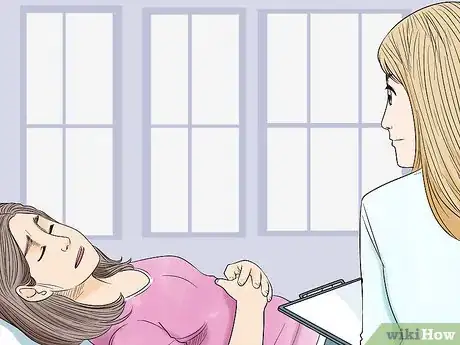
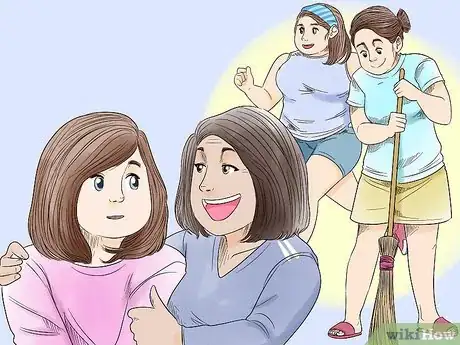

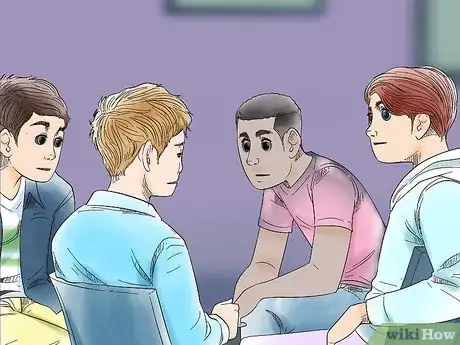

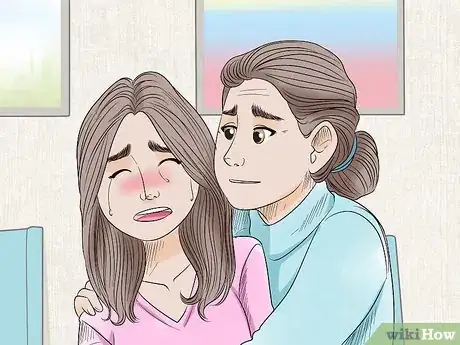

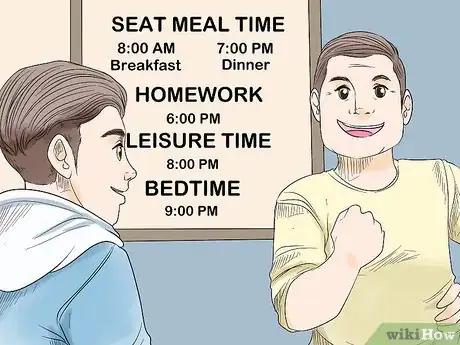



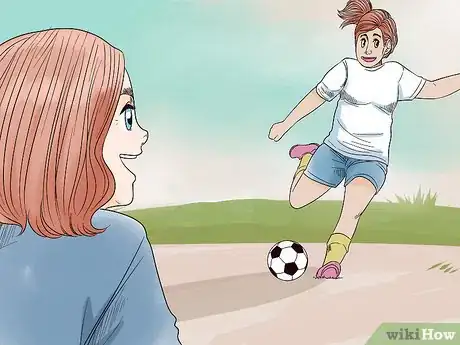

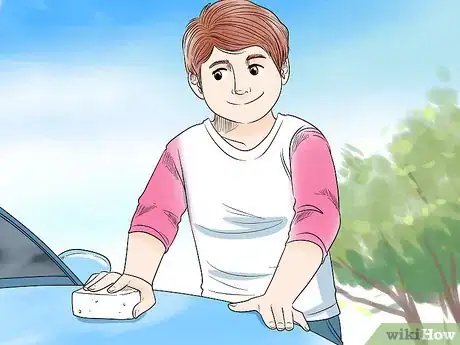
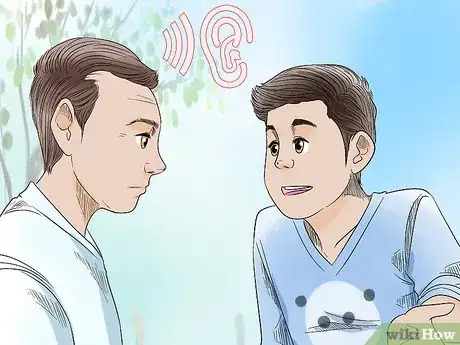








-Step-19-Version-3.webp)
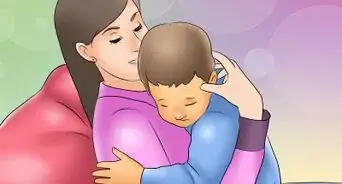


















-Step-19-Version-3.webp)





































